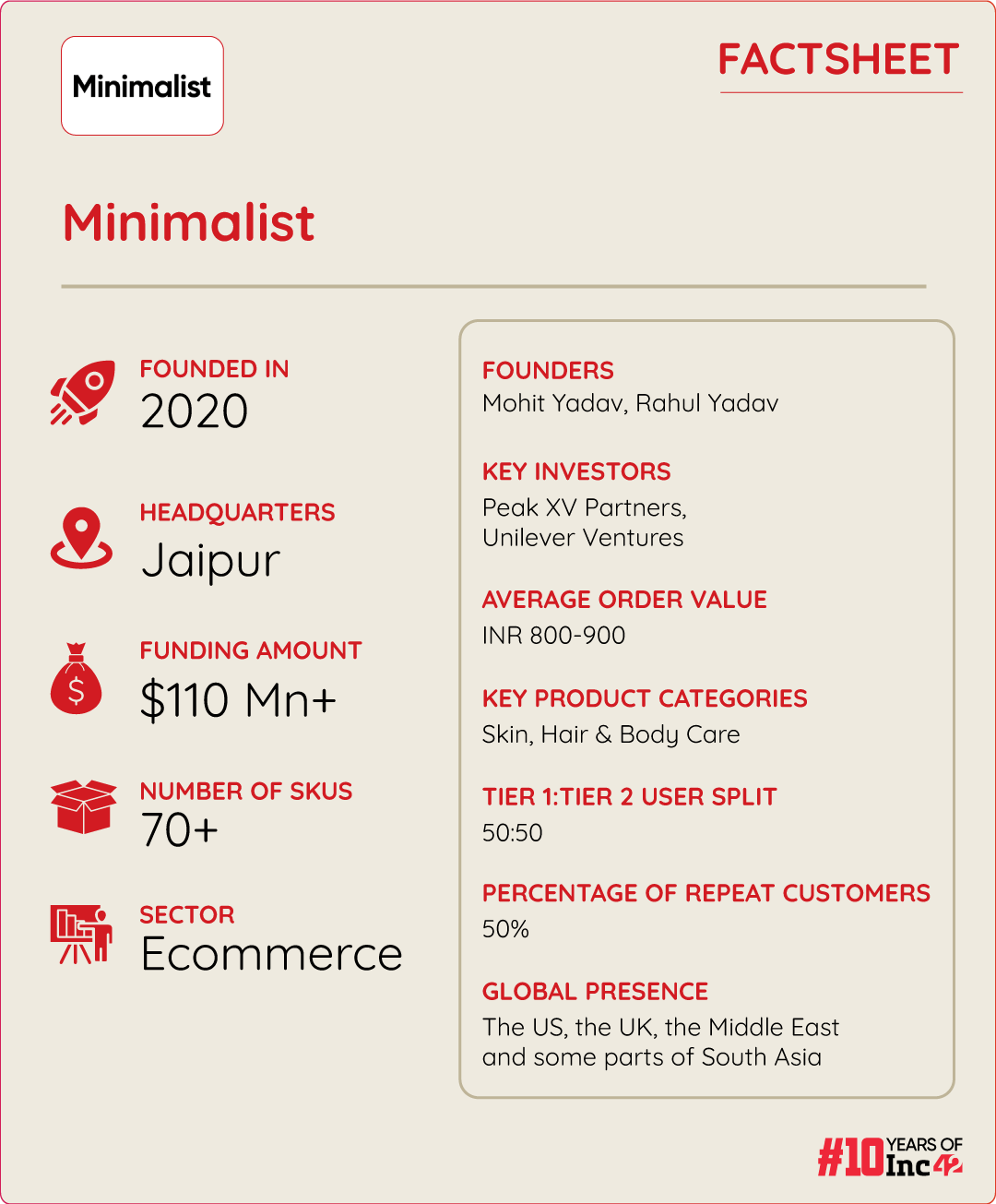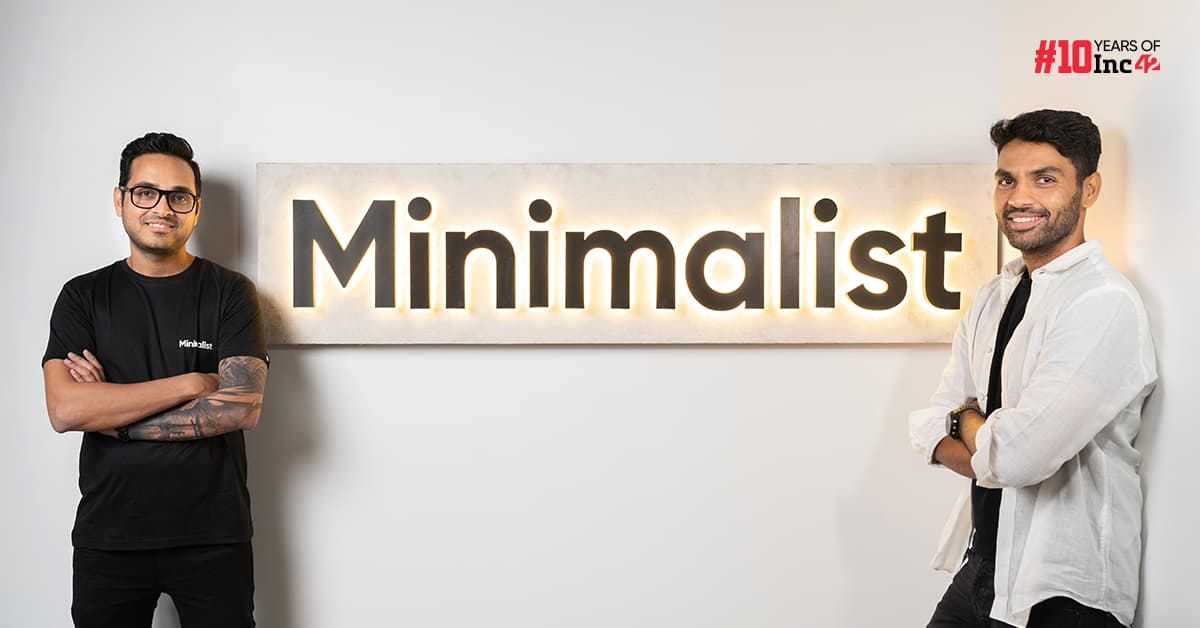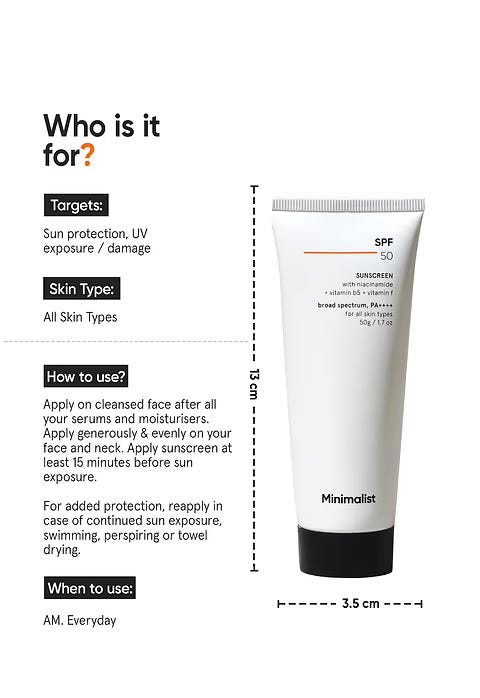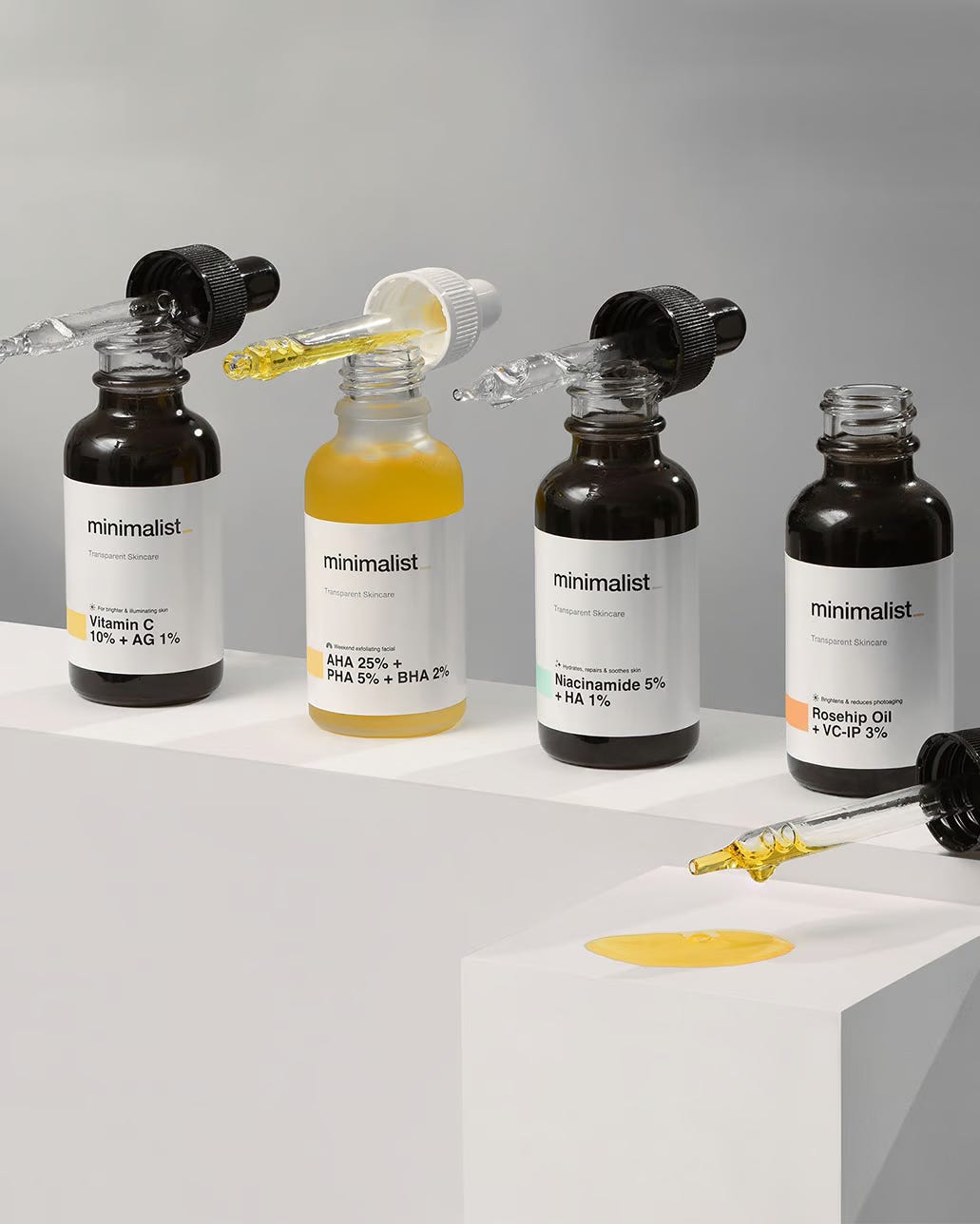How Minimalist is Revolutionizing the $2 Billion Skincare Market with Transparency
Minimalist is disrupting skincare with science-backed, transparent solutions, debunking myths and delivering real results at affordable prices. Trusted globally, it’s redefining beauty through honesty
In 2020, Mohit and Rahul Yadav, two brothers from Jaipur, launched Minimalist with a vision to revolutionize the beauty industry through transparency.
They identified misleading claims, fear-mongering around chemicals, and an outdated belief system among consumers.
Minimalist aimed to debunk these myths by introducing science-backed skincare solutions.
In just eight months, the brand hit ₹100 crores ($13 million) in revenue.
Today, Minimalist generates ₹375 crores ($45 million) annually, expanding beyond India to international markets like the US and UK
Breaking Myths: Foam, Fragrance, and Gimmicks
For years, consumers were conditioned to believe that good fragrance and more foam equaled quality.
Fortune brands leveraged these gimmicks, convincing people that foam and fragrance determined effectiveness.
Minimalist entered the market to disrupt this thinking, proving that these factors had nothing to do with a product’s efficacy.
They offered NAFE-safe (No Artificial Fragrance and Essential oils) products, free of the gimmicks that once dominated the industry.
Today, the internet has made consumers more informed. Access to free or cheap data allows people to research products thoroughly.
Minimalist tapped into this growing base of informed buyers by focusing on transparency, providing science-backed products without misleading marketing fluff.
This resonated with a market ready for change.
Active Ingredients: A Game-Changer for Modern Skincare
Minimalist’s success began with its focus on active ingredients—powerful chemicals that treat specific skin concerns like acne, wrinkles, and pigmentation.
Unlike other brands that promoted vague claims, Minimalist clearly communicated the science behind their products.
Consumers now knew what ingredients, such as Niacinamide and Salicylic Acid, they were using and why.
This strategy worked especially well in a market where people were becoming increasingly skincare-savvy.
With more disposable income, India’s middle class was ready for products that actually worked.
Minimalist was the first Indian brand to make active ingredients a core part of its offering, and the results were clear—happy customers who understood the real value behind the product
Radical Transparency: Educating and Empowering Customers
Transparency is at the heart of Minimalist’s ethos.
Their packaging lists not only the ingredients but also the concentration and source of each one.
Gone were the days of vague claims—customers could now make informed decisions.
For instance, when buying their Vitamin C serum, consumers knew exactly how much Vitamin C they were applying and why it worked.
This commitment to openness won Minimalist a loyal following, with a 60% repeat customer rate.
Consumers felt empowered, knowing that what they were using on their skin was safe, effective, and scientifically proven.
By building this trust, Minimalist changed the relationship between consumers and beauty brands
In-House Manufacturing: Ensuring Quality and Control
Unlike many brands that rely on third-party manufacturers, Minimalist took a bold step and invested in its own manufacturing facility.
This allowed them full control over the quality of their products and the ability to innovate quickly.
Rahul’s expertise in chemical engineering ensured that every product met the highest standards.
While this required significant investment, it paid off in the long run.
Minimalist could maintain its promise of transparency and effectiveness by ensuring that every product was carefully tested and safe for consumers.
Affordable, High-Performance Skincare
Minimalist struck a delicate balance between affordability and quality.
Their products, priced between ₹200 and ₹600 ($2.50 to $7.50), allowed consumers to access high-performance skincare without breaking the bank.
While most international brands with similar offerings sold their products at premium prices, Minimalist’s accessible pricing attracted India’s growing middle class and international markets.
For example, their Niacinamide serum, priced at ₹500 ($6), offers the same benefits as international brands that sell for $30 or more.
This pricing strategy made Minimalist the go-to brand for people who wanted results without paying a premium
Global Expansion: Adapting to International Markets
Minimalist didn’t just capture the Indian market—they expanded into the US, UK, and Southeast Asia.
But they understood that what worked in India wouldn’t necessarily work elsewhere.
In the UK, their anti-aging products gained popularity, while in India, acne treatments remained bestsellers.
This localization strategy allowed Minimalist to build a global presence while staying relevant in each market.
Currently, 10% of their revenue comes from international sales, with plans for further growth abroad.
Organic Growth: Building a Loyal Customer Base
Most D2C brands spend between 40-50% of their revenue on marketing. But Minimalist took a different route.
They focused on organic growth, relying heavily on customer education and word-of-mouth recommendations.
Only 25% of their budget went to marketing, allowing them to invest more in product quality and R&D.
By building trust through transparency and delivering products that worked, Minimalist turned customers into loyal advocates.
Satisfied users became their best marketers, driving sales and helping the brand grow without aggressive advertising campaigns.
Sourcing Premium Ingredients for Maximum Impact
Minimalist sourced their ingredients from world-class suppliers like BASF and Dow Chemicals, ensuring that only the best components were used.
This decision made their cost of raw materials 40-50% higher than those of their competitors, but it was a conscious choice.
By investing in top-quality ingredients, Minimalist could guarantee the effectiveness of their products, ensuring that consumers saw real results.
This focus on ingredient quality allowed them to maintain a competitive edge without resorting to misleading claims or inferior materials.
Simplifying Skincare: Personalized Solutions
To further enhance the customer experience, Minimalist introduced a simple 2-minute quiz that helped users personalize their skincare routine.
By answering questions about their skin type, age, and concerns, customers received tailored product recommendations, saving them the hassle of trial and error.
This personalized approach also eliminated the need for constant dermatologist visits, making skincare more accessible
Tackling Misinformation: Educating a New Generation
Minimalist didn’t just create products; they challenged the industry’s long-standing misconceptions.
By calling out the outdated belief that more foam and stronger fragrance meant better quality, they re-educated consumers. NAFE-safe (No Artificial Fragrance and Essential Oils) products became the new standard, offering clean, effective skincare.
With the internet now widely accessible, customers could easily research products and debunk false marketing claims.
Minimalist tapped into this new wave of informed consumers, delivering products that did what they promised—without the unnecessary bells and whistles.
Lessons from Minimalist’s Success
Minimalist’s meteoric rise offers critical lessons for brands looking to enter or disrupt the skincare industry:
Transparency is key: Today’s consumers demand honesty. Be open about what’s in your product and why.
Control quality in-house: Investing in your production ensures quality and innovation.
Affordable luxury: Offering premium products at accessible prices widens your audience.
Debunk old myths: Educate consumers to see past outdated beliefs like "more foam equals better."
Global adaptation: Tailor your products for each market while staying true to your core values.
Organic growth works: Focus on delivering a great product, and your customers will spread the word for you.
Minimalist proved that a brand built on transparency, science-backed solutions, and affordability can thrive, even in the most competitive markets.
Their journey highlights the power of education, trust, and a commitment to delivering real results.







